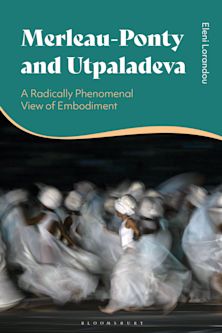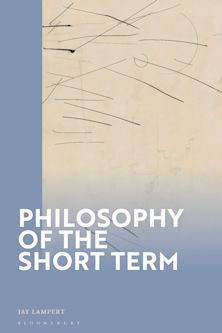Interaction and Everyday Life
Phenomenological and Ethnomethodological Essays in Honor of George Psathas
Interaction and Everyday Life
Phenomenological and Ethnomethodological Essays in Honor of George Psathas
Description
Phenomenological sociology and ethnomethodology have many adherents and practitioners throughout the world. The international character of interest in these two areas is exemplified by the scholars from Canada, France, Germany, Japan, South Korea, Switzerland, and the United States who contributed to this collection. Together they exemplify the kinds of theoretical and research issues that arise in seeking to explore the social world in ways that respect what Edmund Husserl referred to as “the original right” of all data. These chapters were inspired in various ways by the work of George Psathas, professor emeritus of Boston University, a renowned phenomenological sociologist and ethnomethodologist as well as a fundamental contributor to phenomenological sociology and ethnomethodology movements both in the United States and throughout the world. The collection consists of three parts: phenomenological sociology as an intellectual movement, phenomenological considerations, and ethnomethodological explorations, all areas to which Professor Psathas has made significant contributions.
A phenomenological sociology movement in the US is examined as an intellectual movement in itself and as it is influenced by a leader’s participation as both scholar and teacher. Phenomenological sociology’s efficacy and potential are discussed in terms of a broad range of theoretical and empirical issues: methodology, similarities and differences between phenomenological sociology and ethnomethodology, embodied sociality, power, trust, friendship, face-to-face interaction, and interactions between children and adults. Theoretical articles addressing fundamental features of ethnomethodology, its development, and its relation to process-relational philosophy are balanced by empirical articles founded on authors’ original ethnomethodological research—activities of direction-giving and direction-following, accounts for organizational deviance, garden lessons, doing being friends, and the crafting of musical time. Through these chapters readers can come to understand the theoretical development of phenomenological sociology and ethnomethodology, appreciate their achievements and their promise, and find inspiration to pursue their own work in these areas.
Table of Contents
Part I. Phenomenological Sociology as an Intellectual Movement
Chapter 1: Phenomenological Sociology in the United States: The Developmental Process of an Intellectual Movement
Hisashi Nasu
Chapter 2: Experiencing a Phenomenological Teacher: A Reflection
Christina Papadimitriou
Chapter 3: Revisiting Psathas: A Personal and Hermeneutic Reappraisal
David Rehorick
Part II. Phenomenological Considerations
Chapter 4: In the Beginning was Embodied Sociality: A Tribute to George Psathas’ Phenomenological Sociology
Hwa Yol Jung
Chapter 5.:Why Ethnomethodology Needs the Transcendental Ego
Michael Barber
Chapter 6: A Problem in Alfred Schutz’s Methodology of the Cultural Sciences
Lester Embree
Chapter 7: Where is Power?: An Investigation into the Formation of Political Semantics
Ilja Srubar
Chapter 8: Trust and the Dialectic of the Familiar and Unfamiliar within the Life-World
Martin Endress
Chapter 9: Phenomenology and Sociology: Divergent Interpretations of a Complex Relationship
Thomas Eberle
Chapter 10: Investigating Friendship: A Prospective Dispute between Protosociology and Phenomenological Sociology
Jochen Dreher
Chapter 11: Face-to-Face Interaction, Kirogi Papa (Wild Goose Dad), and the Stranger: A Social-Phenomenological Study of Changing Intimacy in the Family
Kwang-ki Kim
Chapter 12: Children as Interactional Partners for Adults
Frances Chaput Waksler
Part III. Ethnomethodological Explorations
Chapter 13: Classical Ethnomethodology, The Radical Program, and Conversation Analysis
Thomas Wilson
Chapter 14: To the Activities Themselves: A Philosophical Interpretation of the Complexities of Experience
Lenore Langsdorf
Chapter 15: The Intelligibility of Directions: The Psathas Corpus
Kenneth Liberman
Chapter 16: Collective Action, Collective Reaction: Inspecting Bad Apples in Accounts for Organizational Deviance and Discrimination
Tim Berard
Chapter 17: Garden Lessons: Embodied Action and Joint Attention in Extended Sequences
Lorenza Mondada
Chapter 18: Doing “Being Friends” in Japanese Telephone Conversations
Aug Nishizaka
Chapter 19. From Phenomenology to Ethnomethodology: The Crafting of Musical Time
Peter Weeks
Appendix: George Psathas’ Books, Edited Volumes, Articles, and Book Reviews
Product details
| Published | Aug 17 2012 |
|---|---|
| Format | Ebook (Epub & Mobi) |
| Edition | 1st |
| Extent | 374 |
| ISBN | 9780739176450 |
| Imprint | Lexington Books |
| Illustrations | 6 BW Illustrations, 19 BW Photos, 1 Table |
| Publisher | Bloomsbury Publishing |




































